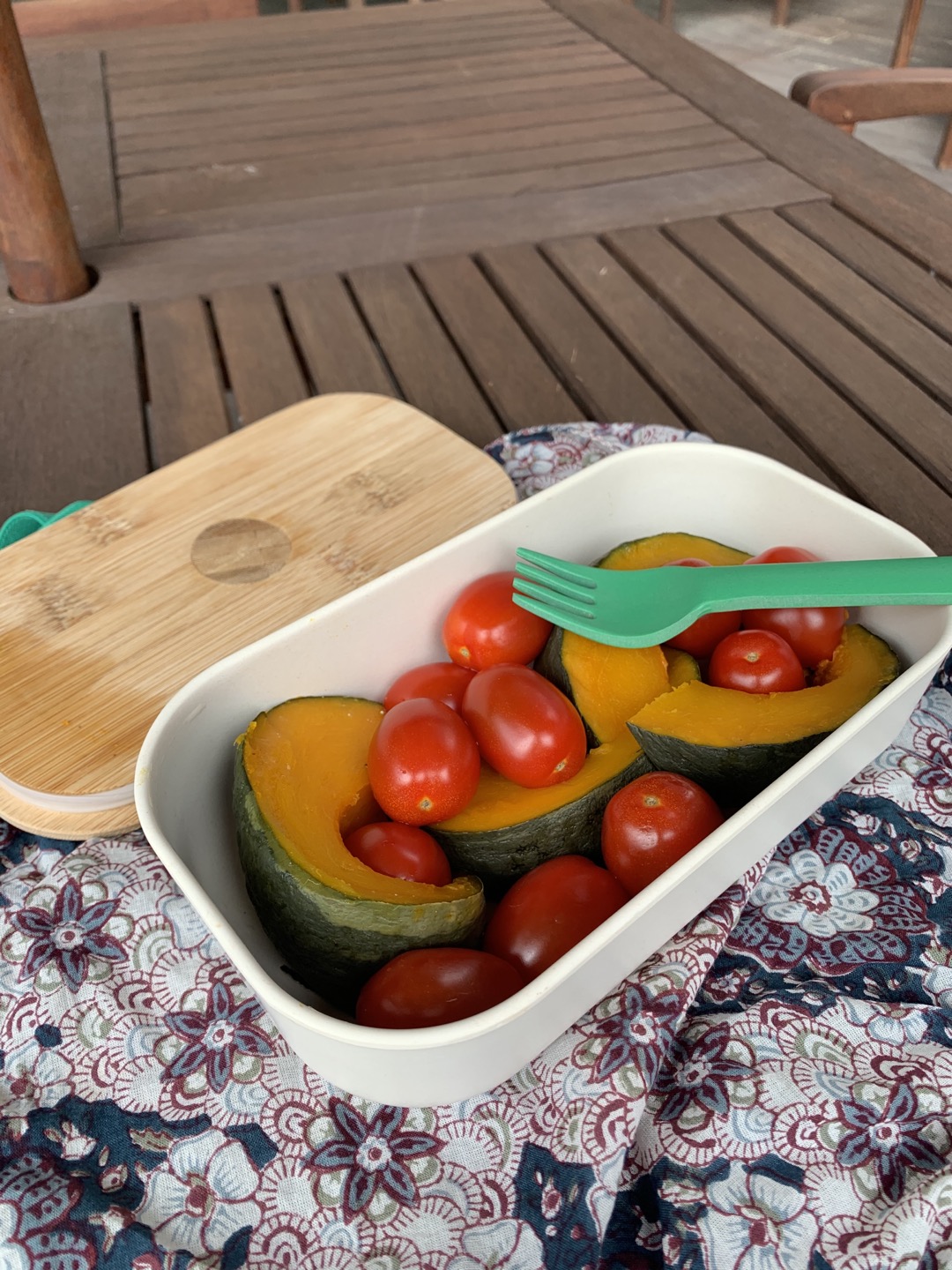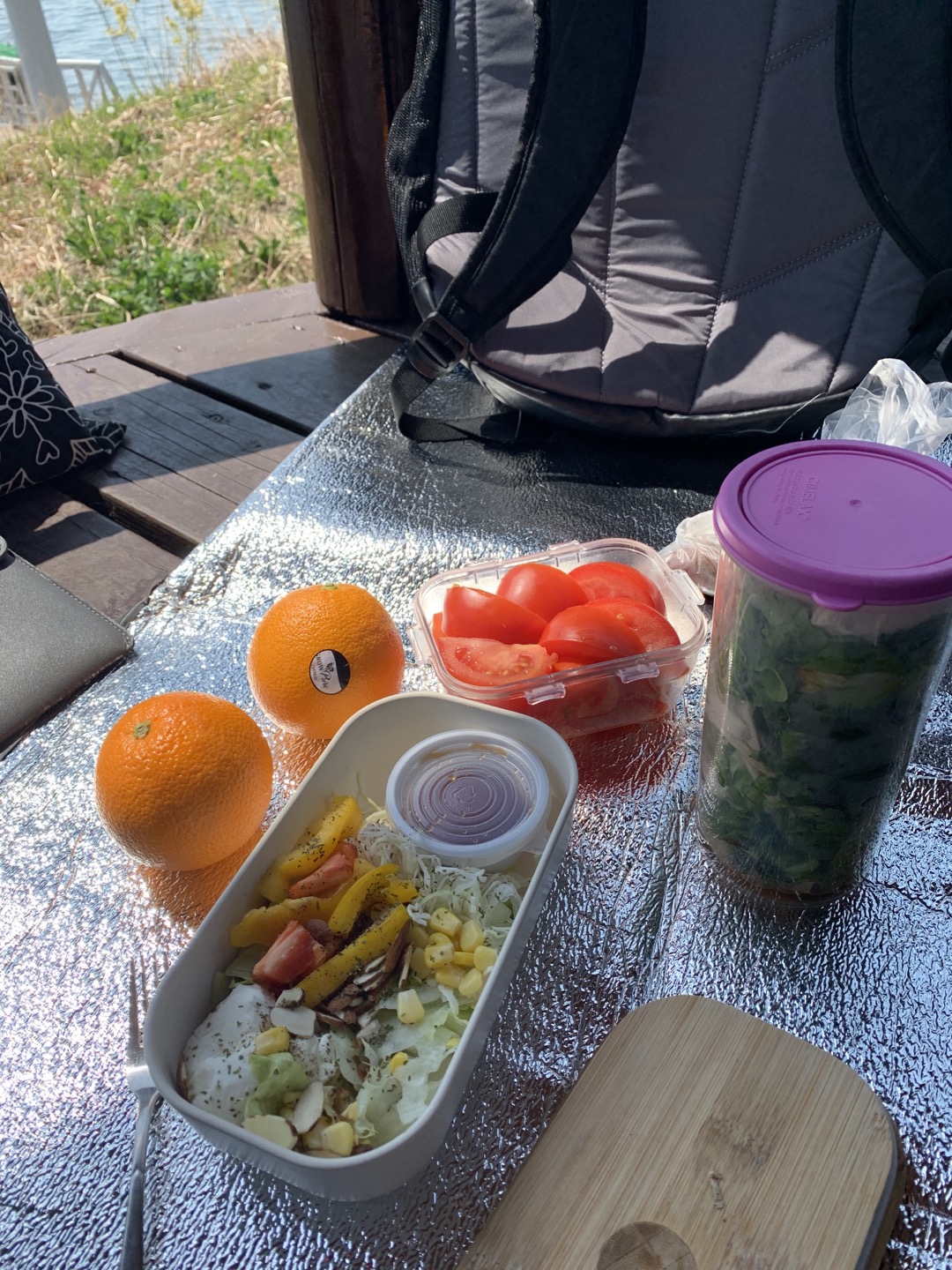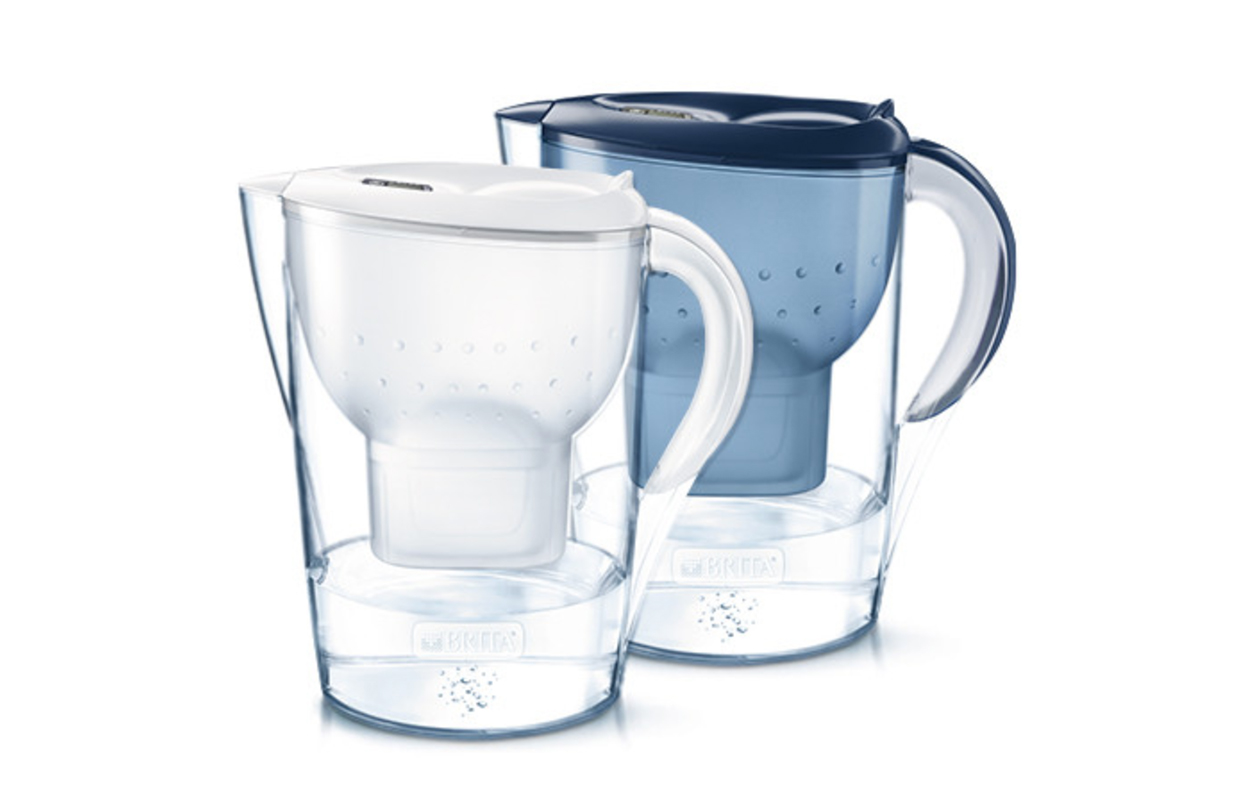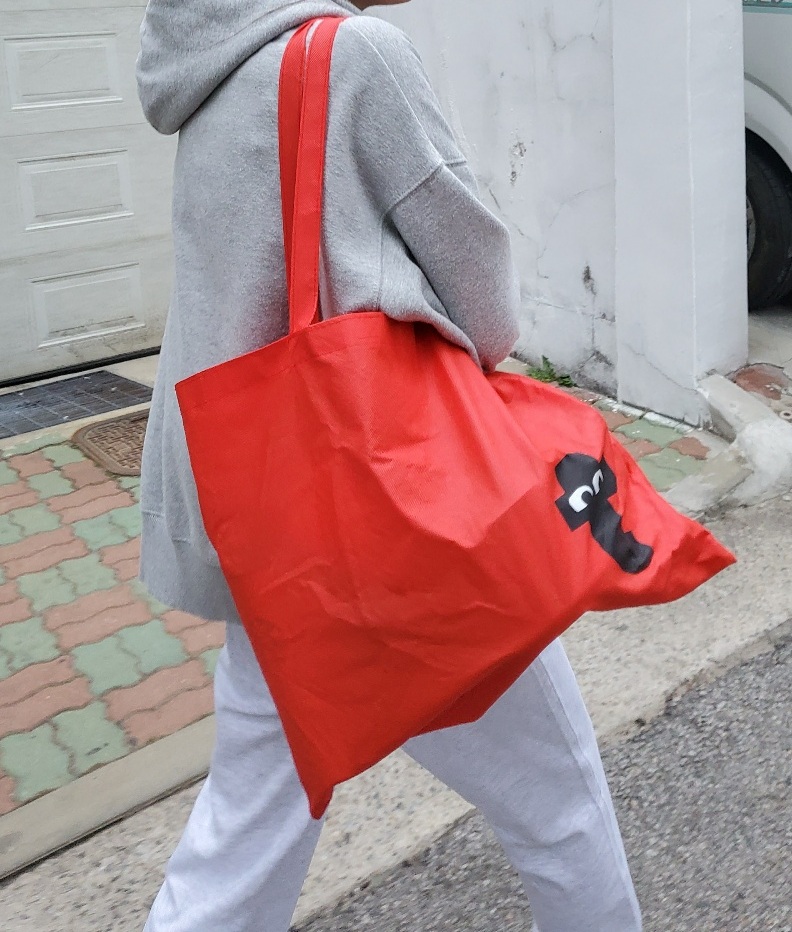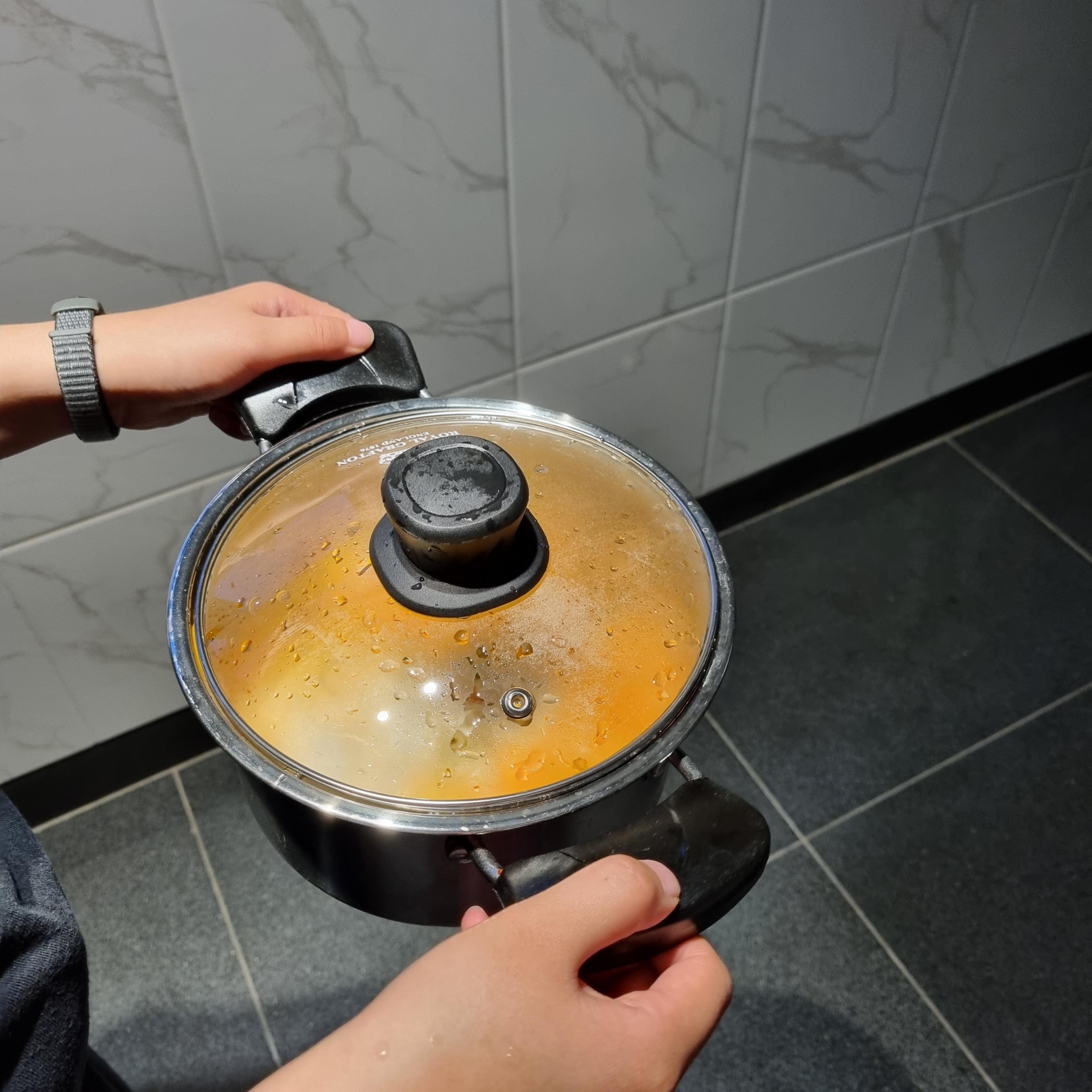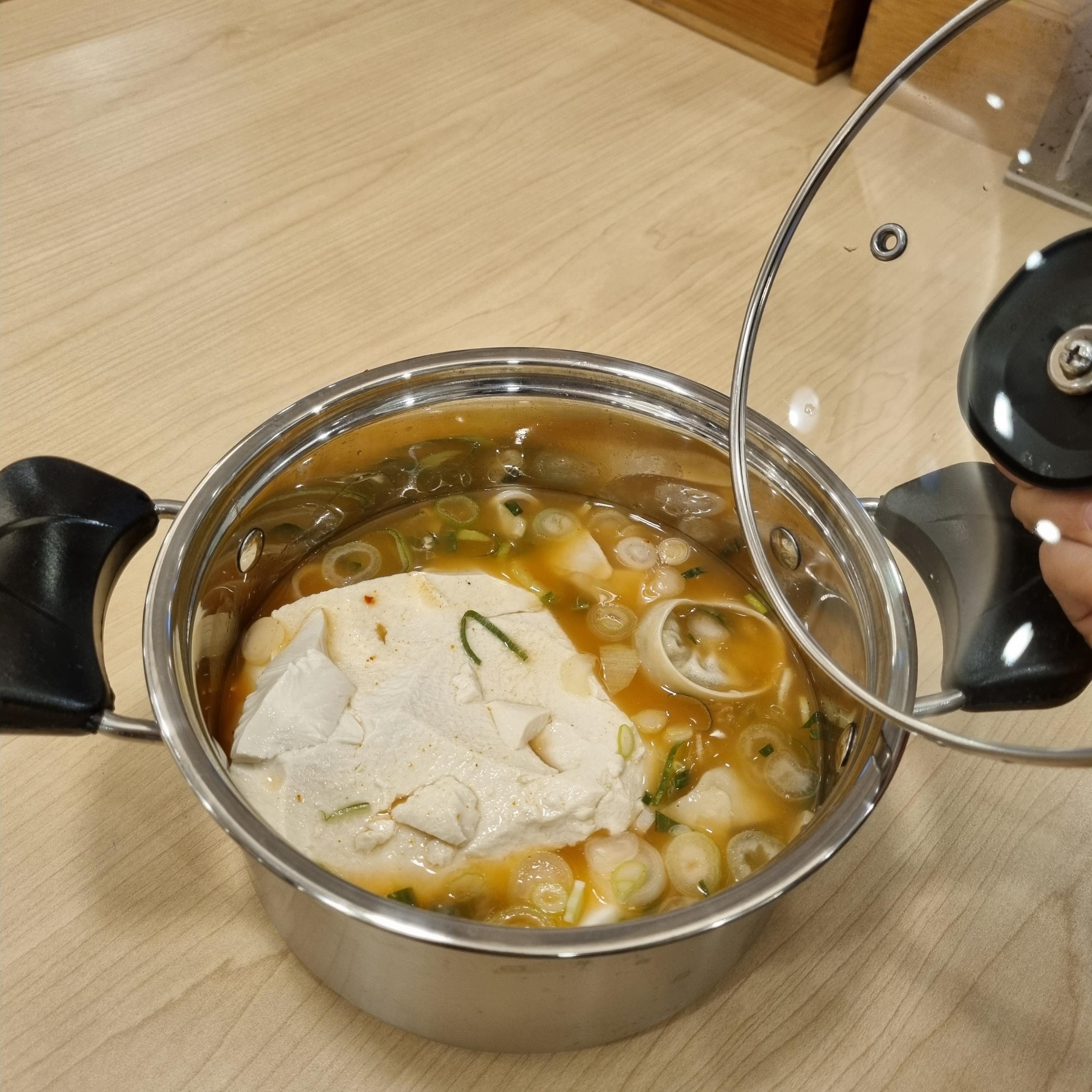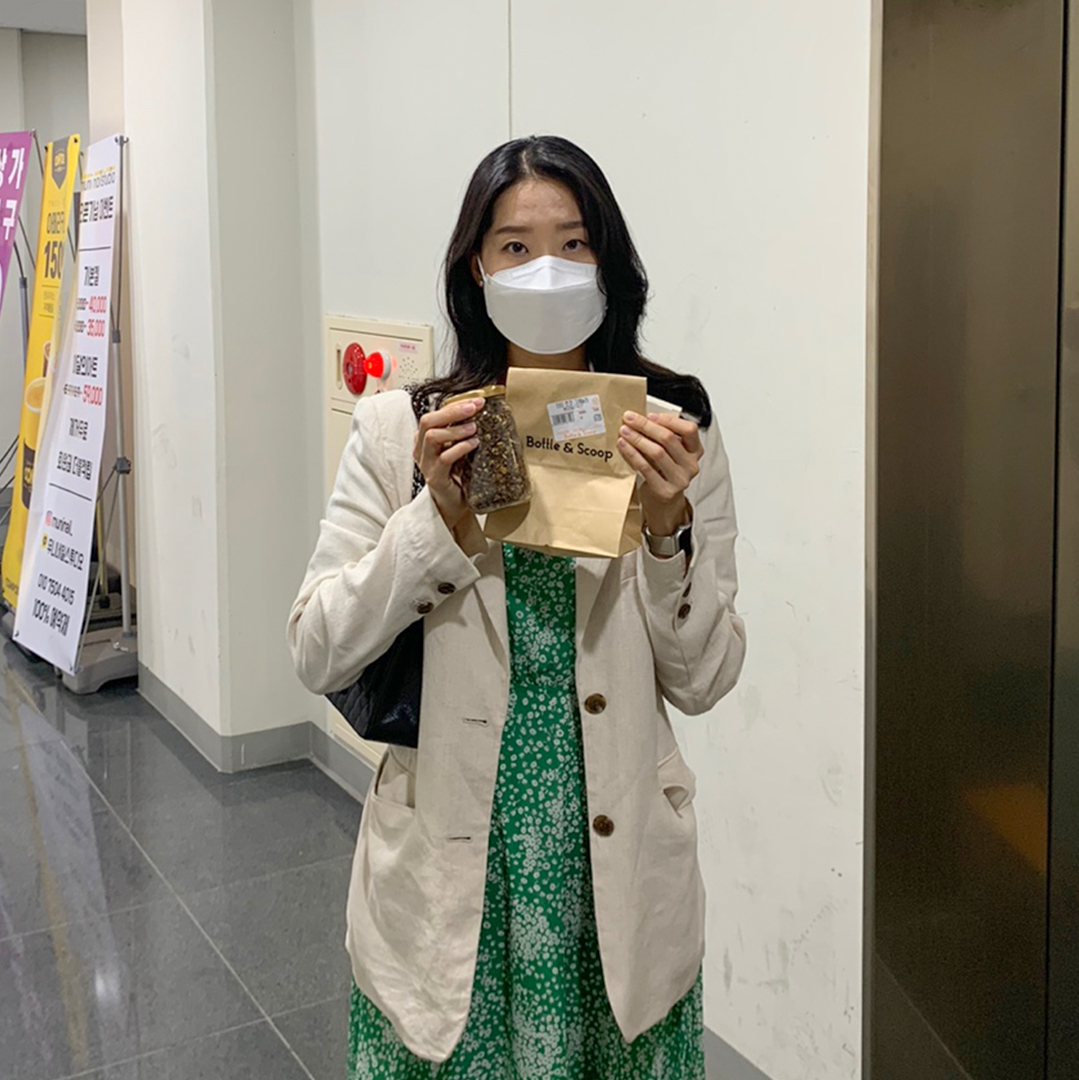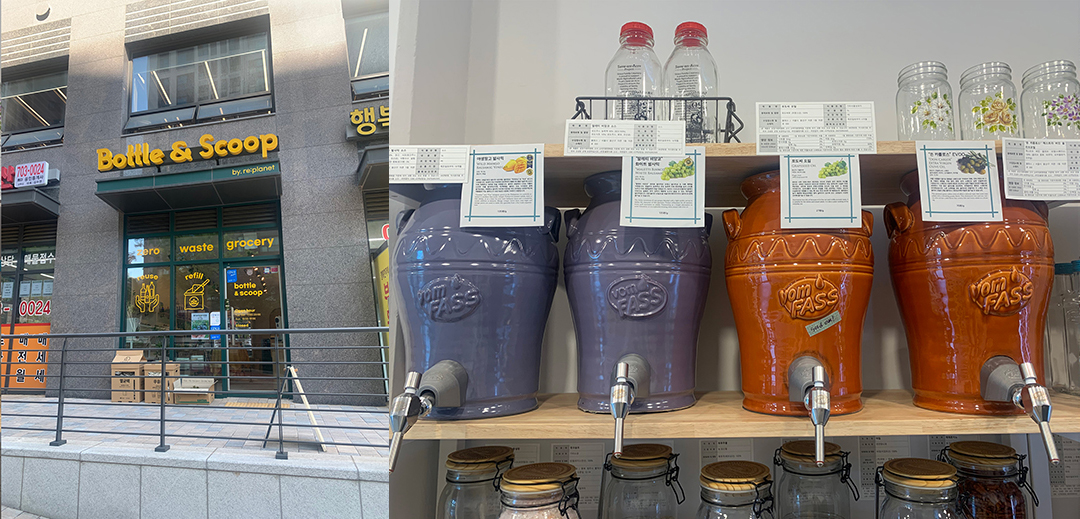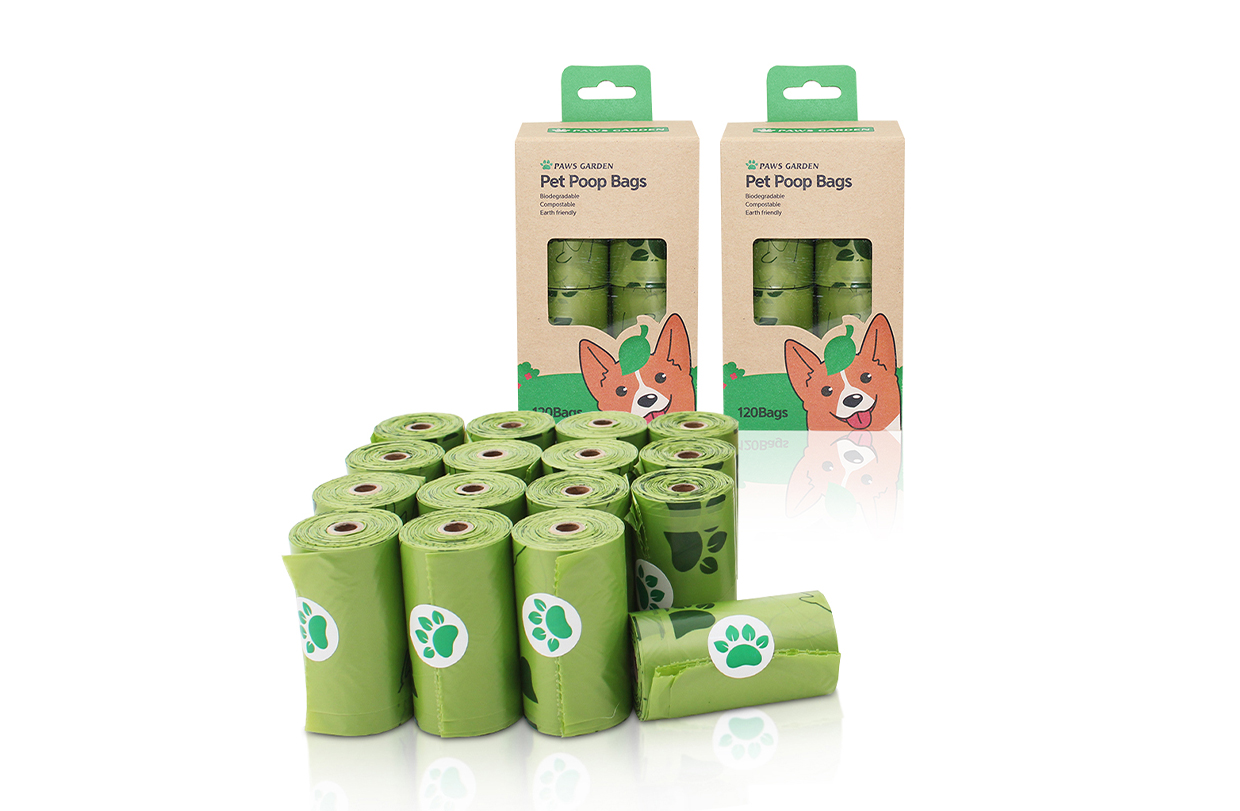There has recently been a lot of discussion on the deposit system for disposable products. Understandably, the environmental issue has grown in importance. Hyundai Glovis employees committed to a zero-waste lifestyle with no disposables in order to curb the indiscriminate use of disposables. What changes have occurred in their everyday lives? Here we will highlight their zero-waste day.
“By limiting the quantity of disposable items,
I have reduced the number of times that I throw out waste.”
I was able to make better use of the time that I would have
otherwise wasted looking for trash cans.”
Park Yoo-hee, America Forwarding Operation Team
How did you manage living without disposables?
It was somewhat intimidating at first. Still, I got up the courage to give it a shot. There were more things than I had imagined when I started looking for things to replace the disposables in my daily life. Instead of using throwaway goods regularly, I replaced them with stainless steel straws, tumblers, and reusable products. It actually wasn’t that difficult. I was also able to spend less time looking for garbage cans and make better use of my time.
What is the one item you would need most if you live without disposables?
I’d have to say a tumbler. I like coffee so much that I buy it twice a day to drink, but if I have a tumbler, I use far fewer disposable items.
What was the most challenging part?
The most challenging aspect, in my opinion, was having to carry things that could replace disposables. Carrying a variety of items makes the bag heavier. Tumblers, in particular, are noticeably heavy, so I thought a lightweight product would be ideal.
In terms of the disposable product deposit system, if you want to use disposable products, you have to pay a 300 won deposit, which you will receive back if you return the disposable products later. What are your thoughts on this?
I’m looking forward to positive developments as the collection rate of throwaway products is likely to increase. I’ve heard that disposable cups, which are frequently used in cafés, are difficult to recycle because they can’t be discarded individually. If single-use products can be gathered using this approach, the amount of waste that is thrown away will be drastically decreased.
Reduced disposables imply decreased production and increased recycling. Do you have any recycling or waste-reduction tips?
I use a Brita water filter pitcher instead of buying bottled water. It is inconvenient to have to purify tap water repeatedly, but it is significant since it can reduce the consumption of PET bottles by that much.
Will you continue to engage in environmental practices in the future?
Yes! I intend to continue doing what I can in the future. I, too, must live on this planet for the next few decades and pass it on to the next generation. I will actively work to conserve the environment, believing that humanity will have to live alongside the earth for a far longer period in the future.
“My pot of tofu stew got rained on
while I was practicing zero-waste.
Still, if it’s good for the environment, I’ll keep doing it!”
Kim Hyun-bin, Bulk Operation Team
Why do you believe that disposables are so commonly used?
Since I worked from home, I had to order delivery food more frequently than usual, so I started using a lot of disposables. I ended up with far more plastic than the food I consume. So I tried reducing the amount of delivery food, but I always failed. Then, just in time, I noticed an article recruiting Zero Waste participants, and I immediately applied with the goal of cutting delivery meals!
How did you manage without disposables?
I tried two things: ordering my café drinks in a tumbler and getting my food in a pot from a restaurant. It was simple to order in a tumbler in a cafe. They even gave a discount for tumblers. However, receiving meals in a pot from a restaurant was a little embarrassing. This will take some getting used to, as I had to walk down the street with a pot full of food after talking with the perplexed restaurant staff.
Are there any interesting experiences that you had while practicing zero waste?
I had soft tofu stew put into a pot, and was bringing it back home, but it started raining on the way. I had no alternative but to walk home in the rain with the pot. On the way, I realized that achieving zero waste is not an easy thing to do. Nonetheless, the soft tofu stew, even bathed in rain and tears, was give times tastier than delivery meals!
What did you like about practicing zero waste?
I spent at least three days at home after eating the delivered food, scrubbing the plastic containers, gathering up recyclables, waiting for the separated garbage collection day, and finally throwing them away. There is hardly any garbage left after implementing zero waste. It was like achieving two goals at once—being able to protect the environment while also living comfortably at home.
Do you intend to continue practicing zero waste in the future?
By taking part in zero waste, I renewed my resolve to reduce the amount of food I have delivered. Even if it’s a bit uncomfortable, I plan to keep on doing this. Wouldn’t a world free of plastics come one day if everyone made small changes in their daily lives to benefit the environment?
Do you believe that environmental protection is essential?
For sure. I think that protecting the environment is a duty. Saving the earth starts with small habits. I believe that if I gradually alter my everyday habits, I will eventually see big differences.
“I also switched the pet litter bag to one made of biodegradable corn flour.
I strive to use more eco-friendly products
as necessities in my daily life.”
Park Ran, PCTC Europe/Africa/Middle East Operation Team
How did you manage without disposables?
It was harder than I had anticipated. I had been using disposables unconsciously, so I was used to it. Since I neglected using multi-use containers, I repeatedly found myself using disposable products. Since then, I have made every effort to limit single-use items as much as I could. Even so, I still believed there was a long way to go.
What is the one item you would need most if you live without disposables?
I would pick a cloth shopping bag or eco-bag. When making a purchase, a shopping bag is often required. If you keep a cloth shopping bag or an eco-bag around, you can avoid using unnecessary shopping bags and save money on purchasing them. Also, because it is lightweight, you can easily stow it in your regular bag.
Are there any interesting experiences you had while practicing zero waste?
I took advantage of the opportunity to go to a zero-waste shop, Bottle & Scoop, in Mapo. Bottle & Scoop does not sell items individually packaged, but in subdivisions instead. Customers can purchase things in the quantity that they want. I forgot to bring multi-use containers, so I assumed I wouldn’t be able to buy anything. Fortunately, the shop owner let me borrow an empty bottle. I was able to put some delicious granola in an empty bottle to buy thanks to this. Having a zero-waste shop that even lends empty bottles was a very unique and enjoyable experience.
Do you intend to continue practicing zero waste in the future?
Yes! This time, I discovered a good shop and alternative products that facilitate practicing zero waste, and I will thus continue to do so in the future. I recently purchased an eco-friendly dish soap, which they recommended for use not only on dishes but also on fruits and vegetables. Of course, this product contains fewer contaminants than ordinary detergents, which contributes to environmental protection. I’m trying out small changes in my own daily life, beginning with dish soap.
In terms of the disposable product deposit system, if you want to use disposable products, you have to pay a 300 won deposit, which you will then receive back if you return the disposable products later. What are your thoughts on this?
It is difficult to completely eliminate the use of single-use items. If a fee is charged for the use of throwaway products, I believe that this can reduce the usage of disposable products, if by even a little. However, it appears to be a bit inconvenient to have to return the disposable items to the retailer. I wish there was a better and easier way.
Reductions in disposables imply decreases in production and increases in recycling. Do you have any recycling or waste-reduction tips?
There are disposable products that you must use if you have pets. One is a litter bag that is used when walking pets outdoors. It’s necessary for pet owners, but I felt awful because I had to use disposable materials every time. Finding out that there is a biodegradable litter bag made of cornstarch compelled me to switch right away. The more vital commodities that we use, the more I believe it is necessary to make efforts to use eco-friendly products.
Do you believe that environmental protection is essential?
I’m noticing the seasons are becoming less distinct compared to before. I believe that environmental protection is critical if we are to continue to appreciate the beauty of the seasons for a long time. I also want to contribute to environmental protection by continuing to engage in small environmental actions.
Writer Editorial Department
2022.06.08



